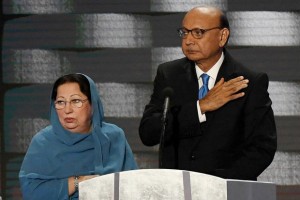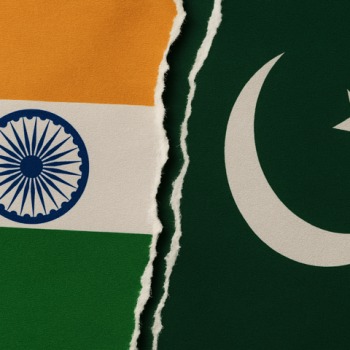by Zohaib Zafar
A few weeks ago, Senator Tim Kaine came to Davidson College in an effort to mobilize millennials so that the Clinton-Kaine ticket can win over North Carolina. He made some interesting observations about how women are treated in America in comparison to other countries. One point he made was that Iraq and Afghanistan have higher representation of women in their legislative bodies and that America must recognize where it comes short.
This fact is especially worth considering when Trump claimed that perhaps Khizr Khan did not allow his wife, Ghazala to speak at the Democratic National Convention. This was when the Khan’s encouraged voters not to dishonor the death of their son who sacrificed his life for America in the Iraq War by voting for Trump. The truth was that Ghazala Khan did not speak because recalling the passing of her son was too difficult. Trump’s remarks about this Gold Star family were an allusion to an incorrect notion that has now become deeply entrenched in the American psyche-that the Muslim World is a deeply sexist one in which women have no rights.

This simply is not true. In terms of countries where Muslims form the majority of the population, many of them have already had women political leaders. This includes Bangladesh, Indonesia, Pakistan and Turkey. While one of our major party Presidential nominees continues to stay in the race despite bragging about sexually assaulting women on record, much of the “Muslim World” has already elected a female to the highest offices in their land. It is time that we stop generalizing about the Muslim World. Furthermore, it is time that we distinguish between the true teachings of Islam and some of the barbaric practices that discriminate against women in some but not most countries in the Muslim World.
Many will argue about what the true teachings of Islam are. I contend that the true teachings of Islam are based on the Holy Quran and the actions of the Prophet Muhammad, peace and blessings of God be upon him. There is many different communities within the Islamic tradition and there are so many doctrinal differences. What unites all Muslims though is their acceptance of the Holy Quran as the word of God and their love for the Prophet Muhammad so it makes most sense to look at these two sources. According to Professor William Montgomery Watt, an Anglican priest and Scottish historian, “At the time Islam began, the conditions of women were terrible – they had no right to own property, were supposed to be the property of the man, and if the man died everything went to his sons. Muhammad improved things quite a lot. By instituting rights of property ownership, inheritance, education and divorce, he gave women certain basic safeguards. Set in such historical context the Prophet can be seen as a figure who testified on behalf of women’s rights.” All of what Muhammad instituted came from the Holy Quran. Among what Watts attributes to the Prophet, the Holy Quran established all such rights for women. Women in America were not given the right to own property until the 1840s while the Prophet Muhammad established this right, nearly a millennia before. Indeed countless Non-Muslims have testified that the Prophet Mohammad promoted women’s rights. For those who have read on the Prophet’s life other than for a few Islamophobes, it becomes clear that the Islam in Saudi Arabia is a lot different than that of the Prophet Muhammad’s.
Why does this all matter? Imagine if a person murdered someone in the name of Jesus. Would it help if people told that individual that Jesus would condone the murder? No because in that individual’s understanding, that would legitimize what they did. Unfortunately, this has become a recurrent theme in how much of the West treats terrorism done in the name of Islam.












